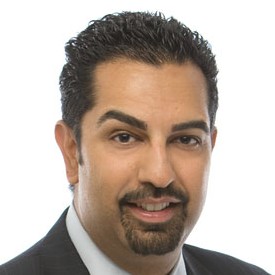BioCentury features Vasomune Therapeutics
 Vasomune Therapeutics, a MaRS Innovation start-up company from Sunnybrook Health Sciences Centre’s Sunnybrook Research Institute, was featured in a BioCentury emerging company profile by Michael J. Haas.
Vasomune Therapeutics, a MaRS Innovation start-up company from Sunnybrook Health Sciences Centre’s Sunnybrook Research Institute, was featured in a BioCentury emerging company profile by Michael J. Haas.
The company is currently raising a Series A financing round and recently closed a seed investment with Genome Canada and an unnamed industry partner. MaRS Innovation also contributed a third of the investment, bringing the round’s total to $1.5 million.
Haas’ profile, “Vasomune: Lassoing Tie2,” is available behind a paywall on the BioCentury website.
Here’s a short excerpt:
Agonizing Tie2 could restore vascular integrity and limit tissue damage in kidney injury, but bringing together the four copies needed to activate the receptor is a job too big for small molecules or antibodies. Vasomune Therapeutics Inc. has shown its four-armed peptidomimetic, vasculotide, activates Tie2 and restores vascular integrity in [preclinical] models.
“Many renal diseases are ultimately characterized by a loss in vascular integrity that damages tubules in the kidney,” CEO Parimal Nathwani said. “Our idea is to use vasculotide to fix the problem and restore normal vascular integrity before it gets out of control.”

